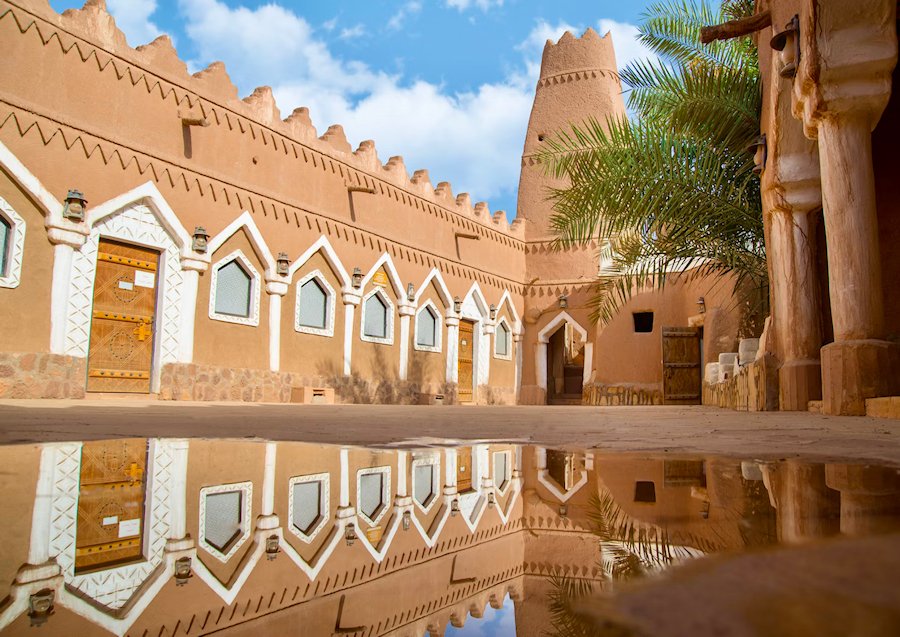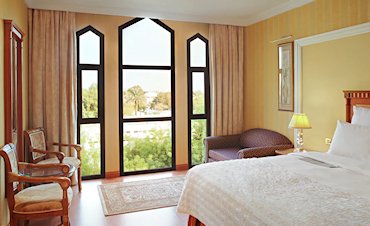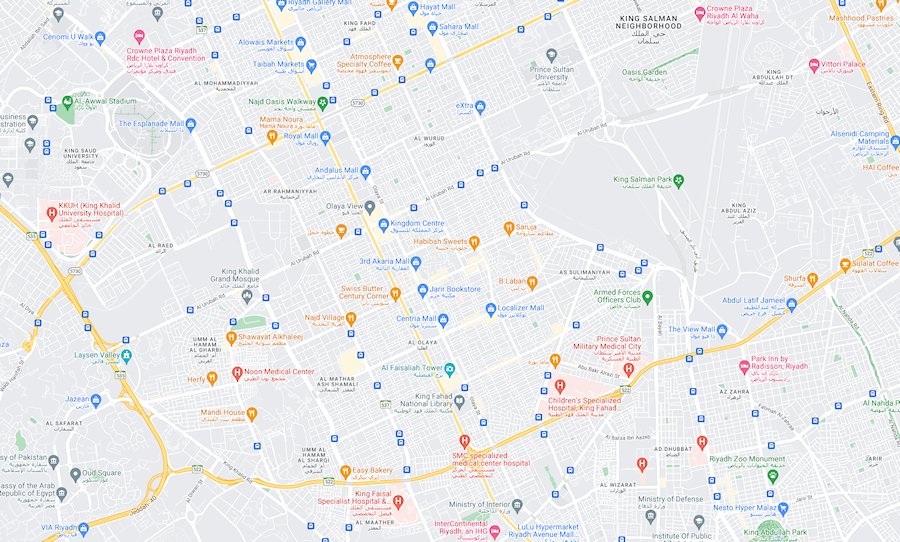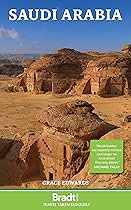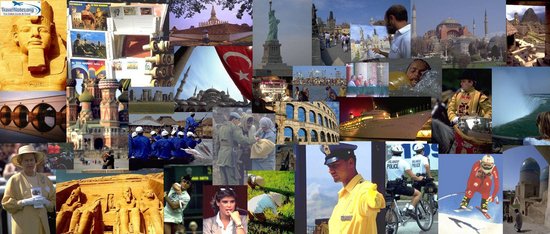Travel Notes: Middle East - Saudi Arabia Travel Notes.
Short URL: https://tnot.es/SA
Saudi Arabia Travel and Tourism on Travel Notes
Authentic Arabian Hospitality - Top Destinations in Saudi Arabia
Immerse yourself in the warmth of Arabian hospitality exploring top destinations in Saudi Arabia. Uncover ancient cities, pristine deserts, and vibrant culture. Share on Facebook
About Saudi Arabia
Saudi Arabia is by far the largest of the Gulf States. More than half of the country is covered in sand though; making it something of an almost empty desert.
Countries neighbouring Saudi Arabia: Jordan, Iraq, Kuwait, Qatar, UAE, Oman and Yemen.
 Add a Business -
Add a Location -
Add a Lodging - Add Travel Content
- Add URL
- Travel Services.
Add a Business -
Add a Location -
Add a Lodging - Add Travel Content
- Add URL
- Travel Services.
Mapping Saudi Arabia
Map of Saudi Arabia
Saudi Arabia is a country located in the Middle East, occupying most of the Arabian Peninsula.
Saudi Arabia Overview
Saudi Arabia is bordered by Jordan and Iraq to the north; Kuwait to the north-east; Qatar, United Arab Emirates, and Oman to the east; and Yemen to the south.
Coastal boudaries are the Red Sea to the west; and Gulf of Aqaba and Gulf of Oman to the south-west.
Capital
The capital city of Saudi Arabia is Riyadh, which is located in the central part of the country.
Culture
Saudi Arabia follows conservative Islamic traditions, and adherence to Islamic law is a central aspect of daily life.
The country observes strict gender segregation in many aspects of society, with women's rights being a topic of ongoing debate and reform in recent years.
Traditional Saudi culture emphasises hospitality, family values, and respect for elders.
Economy
Saudi Arabia has a highly oil-dependent economy; being one of the largest oil producers and exporters in the world.
The petroleum sector accounts for a significant portion of the country's GDP, government revenue, and export earnings.
However, the government has been making efforts to diversify the economy, investing in industries such as petrochemicals, finance, and tourism.
Foreign Relations
Saudi Arabia plays a significant role in regional and international politics due to its strategic location, oil wealth, and religious significance.
It has strong ties with Western countries, particularly the United States, while also being a key player in the Arab world.
However, the country has faced criticism for its human rights record, involvement in regional conflicts, and alleged support for extremist ideologies.
Geography
Saudi Arabia is predominantly desert, with the Rub' al Khali or the 'Empty Quarter' being the largest continuous sand desert in the world.
Saudi Arabia also has some mountainous regions and coastal areas along the Red Sea and the Persian Gulf.
Government
Saudi Arabia is an absolute monarchy ruled by the Al Saud family, with the king serving as the head of state and government. The country follows a strict interpretation of Islamic law, and the legal system is based on Sharia.
Recent Developments
In recent years, Saudi Arabia has undergone significant social and economic reforms under the leadership of Crown Prince Mohammed bin Salman, aimed at modernising the country and reducing its dependence on oil.
These reforms have included initiatives such as Vision 2030; which seeks to diversify the economy, promote tourism, and empower women.
However, these reforms have also been accompanied by controversies and criticism, particularly regarding human rights issues and the handling of dissent.
Religion
Islam is the state religion, and the majority of the population adheres to the Sunni branch of Islam.
The country is home to two of the holiest cities in Islam - Mecca and Medina - which attract millions of Muslim pilgrims from around the world each year for the Hajj and Umrah pilgrimages.
Visiting Saudi Arabia
If you're considering visiting Saudi Arabia, there are several aspects to keep in mind to ensure an enjoyable experience.
Cultural Sensitivity
Familiarise yourself with Saudi Arabia's cultural norms and customs.
Respect for local traditions, especially in dress code and behaviour, is important in countries like Saudi Arabia.
Food and Cuisine
Enjoy the rich and flavourful Saudi Arabian cuisine; which often includes dishes like Kabsa (spiced rice with meat), Mandi (slow-cooked meat and rice), and various types of grilled meats and kebabs.
Islamic Sites
Saudi Arabia is home to several significant Islamic sites, including the cities of Mecca and Medina; which are considered the holiest in Islam.
Non-Muslims are generally not permitted to enter these cities, but there are other historical and cultural sites to explore.
Language
Arabic is the official language of Saudi Arabia, but English is widely spoken; especially in urban areas and 'tourist destinations'.
Local Events and Festivals
If possible, try to time your visit with local events or festivals to experience Saudi Arabian culture and traditions firsthand.
Outdoor Activities
Take advantage of outdoor activities such as desert safaris, camel riding, diving, and snorkelling in the Red Sea; or exploring the mountains of the Asir region.
Shopping
Experience traditional Saudi markets, known as souks, where you can shop for a variety of goods including spices, textiles, handicrafts, and jewellry.
Tourist Attractions
Explore the diverse landscapes and attractions Saudi Arabia has to offer.
From the bustling capital city of Riyadh to the ancient ruins of Al-Ula and the stunning Red Sea coastline, there's much to see and experience in Saudi Arabia.
Travel Advisory
It is important to stay updated on travel advisories and safety guidelines issued by your government regarding travel to Saudi Arabia.
Visa Requirements
Check the visa requirements for your country before planning your trip.
Saudi Arabia has recently opened up to tourism, but visa regulations may vary depending on your nationality.
Arabia
Alexander the Great's plans to conquer Arabia were cut short by his death.
By the 5th century AD Mecca had gained in stature over the Nabataean city of Petra, in present-day Jordan.
Jeddah
Jeddah started as a fishing village, when the Quadaa fishermen settled here some 2,500 years ago; its natural harbour and reef offering a good base for their fishing boats.
Balad
- The Soul of Jeddah:
Travel back in time to the land of Arabian Nights.
Mecca
The prophet Muhammad was born in Mecca, in 570, but had to move to Medina when his teachings angered local residents.
When he was 60, the prophet Muhammad returned to Mecca with his followers, and conquered the city.
Pilgrimage to Mecca
The Pilgrimage to Mecca (Hajj) is the fifth of the 'Five Pillars of Islam' - the five most important acts of a Muslim (Sunni Islam) under Sharia law.
Special visas are issued to foreigners by the Government of Saudi Arabia, for the purpose of pilgrimage; although entrance to the city itself is forbidden to non-Muslims, as the entire city is considered a holy site in Islam.
Every sane and able-bodied Muslim who can afford to do so is obliged to make the pilgrimage to Mecca at least once in their lifetime, during the last month of the Islamic Calendar (Dhu al-Hijjah, or Month of Hajj).
His founding of Islam changed the course of history, and eventually turned Mecca into an important place of pilgrimage for Muslims.
The Hajj
Pilgrimage rites occur during a five-day period, between the 8th and 12th days of the twelfth lunar month.
The event is also marked by the Islamic holiday of Eid al-Adha, which falls on the 10th day of the lunar month.
Some 2 million pilgrims visit the Holy sites during the Hajj and some of the Holy places can be very crowded, particularly at the stoning of the Satans at Mina (BBC stoning story from 2003) and the circumambulation of the Kaaba.
Travel to Mecca For Hajj
Many pilgrims fly to Jeddah and then travel to Mecca by bus.
Some 25,000 British Muslims make the annual pilgrimage.
Islamic Months
1. Muharram; 2. Safar; 3. Rabi' al-awwal; 4. Rabi' al-thani; 5. Jumada al-awwal; 6. Jumada al-thani; 7. Rajab; 8. Sha'aban; 9. Ramadan; 10. Shawwal; 11. Dhu al-Qi'dah; 12. Dhu al-Hijjah.
Medina
Medina is also an important holy city, as Muhammad's tomb is in the Mosque of the Prophet.
Where to Stay in Medina
Le Meridien Medina
Le Meridien Medina: Khaled Bin El Waleed Road, Medina.
The spacious yet intimate lobby ushers you into perfect blend of contemporary elegance with a touch of traditional hospitality.
The only first class hotel outside the holy Haram area, Le Meridien Medina caters for both Muslims and other religious groups.
Neom
NEOM is part of the Saudi Vision 2030 initiative, which aims to diversify the economy and reduce dependence on oil.
NEOM Project
NEOM is an ambitious megacity project being developed in north-west Saudi Arabia, specifically in Tabuk Province.
Launched in 2017 by Crown Prince Mohammed bin Salman, NEOM aims to create a futuristic urban environment that operates independently from the existing governmental framework, with its own laws and regulations.
The project covers an area of 26,500 square kilometers (10,200 square miles) and is designed to be powered entirely by renewable energy.
Climate Diversity
NEOM’s diverse climate offers both sun-soaked beaches and snow-capped mountains.
Unique Location
NEOM’s unique location will provide residents with enhanced livability while protecting 95% of the surrounding natural landscape.
Urban Living
While NEOM represents a bold vision for the future of urban living, it faces substantial hurdles that could impact its realisation.
The project's success will depend on navigating these challenges effectively while maintaining its ambitious goals.
Riyadh
Map of Riyadh
The Wahhabi and Saudis suffered many setbacks, but founded Riyadh as their capital in 1818, and then set out to reconquer the earlier lands they lost.
On arrival of the Ottomans, the dynasty was divided by civil war; and the defeated Saudis had to lie low and lick their wounds in Kuwait.
Abdul Aziz ibn Saud returned from Kuwait with an army to retake Riyadh in 1902.
By 1906 the Saudi forces controlled the Najd region again, and went on to capture the Hasa region in 1913; the Jebel Shammar in 1921; Mecca and Medina around 1924; and Asir in 1926.
Satisfied with these accumulative victories, Abdul Aziz ibn Saud declared himself king of Al Hijaz, made Mecca the religious capital, and gave his immense domain the name of Saudi Arabia.
Embassies in Riyadh
British Embassy in Riyadh:
In 1985 the Diplomatic Community moved from Jeddah to the Diplomatic Quarter; a purpose
built suburb of Riyadh which houses the majority of foreign embassies and delegations in
Riyadh.
US Embassy in Riyadh:
P.O. Box 94309, Riyadh 11693.
Telephone: 9661-4883800
Saturday to Wednesday 8:00-17:00 (except holidays).
Saudi Arabia by Air
Flights to Riyadh - RUH
Airlines and Airports - Cheap Flight Tickets.
Saud Dynasty
Muhammad ibn Saud founded the Saud dynasty, near present-day Riyadh, during the 15th century.
The Wahhabi fundamentalist sect was formed by the religious leader Muhammad ibn Abd al-Wahhab in the mid-18th century.
With the support of the Saudi armies, the movement spread to form a nationalist Arab state in the Najd.
Saudi Arabia Travel Guides
Saudi Arabia Guides - Saudi Arabia Maps.
Weather in the Middle East:
Local weather forecasts for destinations around the Middle East.
|
|
More From Travel Notes
Travel Notes Online Guide to Travel
Africa - Asia - Caribbean - Europe - Middle East - North America - Oceania - South America.
The Travel Notes Online Guide to Travel helps visitors plan their trip with country and city travel guides, local tourist information, reviewed web sites, and inspiring travel content.
Travel and Tourism Guides on Travel Notes
 If you find Travel Notes useful, please take a moment to
like us on Facebook and share with your friends on social media.
If you find Travel Notes useful, please take a moment to
like us on Facebook and share with your friends on social media.
Share on Facebook
Travel Resources
.
Travel & Tourism With Industry Professionals.

